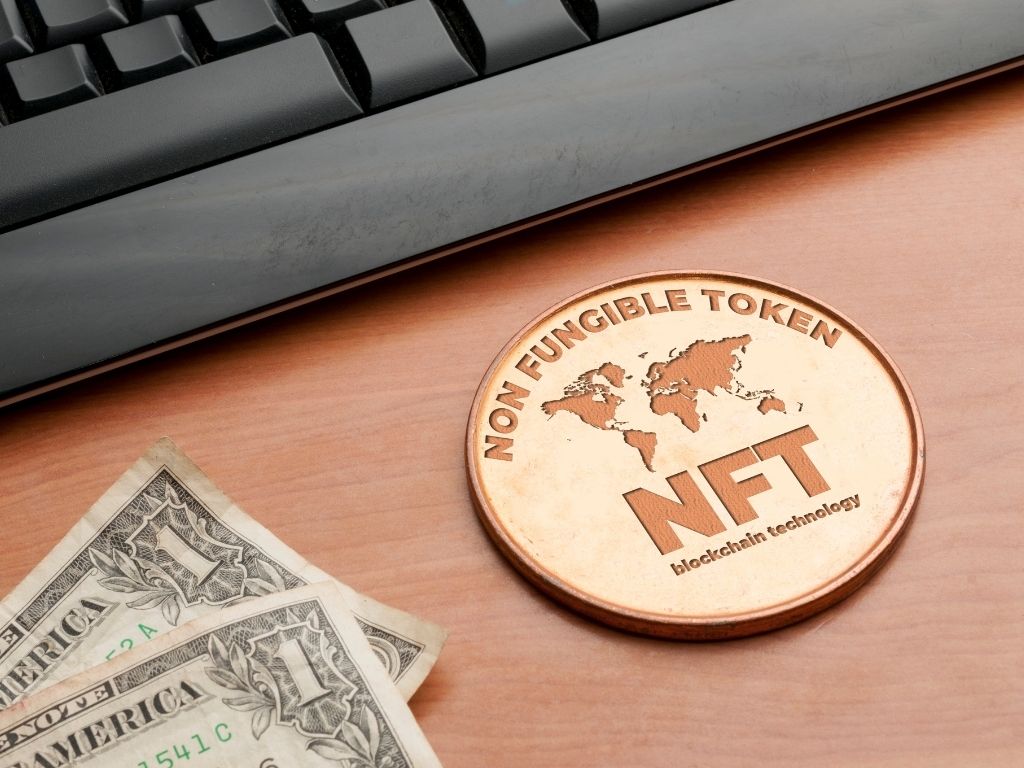NFT and the Future of Real Estate, a great marriage to see
Non-fungible tokens are digital items that are unique in some way. They can be used in transactions on the blockchain to represent any tangible or intangible thing.
This tokenization process is done by using a token-generating system that is built using smart contracts. This system provides the owner with the ability to show ownership of an asset, record who owns it and transfer it securely without any need for currency exchange.
Digital tokens can be used in various situations such as when someone needs to prove their identity without revealing too much information about themselves, like when you log into Facebook or create a new computer account.
NFTs are digital collectibles that are unique in nature. They can’t really be copied like fungible tokens since they each have their own set of attributes. The main use case for NFTs in the real estate industry is to create unique virtual buildings that people can then buy and sell – kind of like stocks.
Thinking About Giving The Present Of An Nft? What To Know About Digital Tokenshttps://t.co/URxAIb2PGt
— NFTGeneratorPad.net (@NFTGeneratorPad) May 4, 2022
NFTs are generated when the property is transferred to a new owner. This can happen in two ways:
1) When it is bought for the first time
2) When the ownership is transferred
There will be two NFTs generated in this case. One for the property that was just bought or sold, and another one for the previous owner who has just sold it.
The Future of Crypto-Assets in Real Estate
Crypto assets are assets that are traded in the digital realm. Crypto assets have emerged as a new asset class for investors, and as such, they can be issued as securities or as blockchain-based tokens.
🏨MetaGround Packs are provided!🃏
Real Estate Asset NFT Card Purchase details covered on Medium🔽🔽https://t.co/6pYPT1iC4x— MetaGround (@meta_ground) May 4, 2022
Many people still think that investing in crypto-assets with the hopes of selling later for a profit is too risky. However, there are some who believe that this is the way of the future. They see cryptocurrency as a way to diversify their investments and reduce reliance on traditional financial markets.
The future of crypto assets in real estate will largely depend on how their regulation is handled by governments and international organizations. Other factors such as regulatory action, institutional investors entering the space, and new technology could also lead to big changes.
The Story Behind the First Property Tokenized on the Blockchain
The tokenization of real estate is not a new concept – it’s been in existence for 20 years. However, there has not been much progress made to actually apply this technology to everyday life until now. Now with blockchain technology behind it, many people are starting to see that this could be the future of real estate transactions.
It has never been more important than it is today for buyers and sellers alike to understand how innovative new platforms like Propy work – and what they can do for you. The first property tokenized on the blockchain is a Scottsdale, Arizona golf course.
The blockchain is the technology that underpins transactions of digital currency like Bitcoin. The Scottsdale deal is with Propy, a San Francisco-based startup that facilitates online real estate deals with blockchain technology.
They have launched and NFT platform in the US which allows a real-world property to be bought as an NFT.
Ownership of the property is secured on the blockchain and this allows both buyers and sellers to save money on fees.
Link for further info is below:https://t.co/qK7RdT70ab
— d2duck (@d2duckcrypto) March 8, 2022
Propy lists properties on its platform and completes transactions using smart contracts and cryptocurrency. The company intends to use the Ethereum protocol to complete this transaction in order to ensure transparency, ease of transfer, and security for buyers and sellers alike.
Propy has already facilitated more than 30 deals for properties in Silicon Valley, including homes owned by Yahoo CEO Marissa Mayer and Google Android co-founder Andy Rubin.
A new way of financing real estate is on the rise. Blockchain technology has given developers new ways to raise funds for their projects. A newly tokenized property is the first example of this new method.
Also, read – How NFT is bringing Metaverse to life
In 2018, a single-family home in California was tokenized and sold to a buyer from New York without ever needing to move from its original location. The company that produced this innovative real estate purchase is called HACKR, and it’s doing what no other company seems even remotely close to achieving: it’s opening up the world of global real estate investments to anyone with a stake.
The future is here with NFT
Non-Fungible Tokens (NFTs) can be hard to wrap your head around. But as more and more projects embrace the idea of blockchain-based item ownership, NFTs are becoming a reality.
NFTs are not like the cryptocurrency tokens we’ve been accustomed to seeing on exchanges. They don’t serve as a form of payment, but rather as proof of ownership for a particular digital asset. This means that if you own an NFT representing an in-game character skin, you have full control over that skin and can do whatever you want with it – even trade it with someone else who owns the same skin!
NFTs can be used by all sorts of companies. They had the potential to replace the usage of money and also solve some of the environmental problems like overpopulation and pollution. NFTs are a type of digital asset that can represent any type of physical asset. As such, they have many potential use cases in various industries.
Stay informed with daily updates from Blockchain Magazine on Google News. Click here to follow us and mark as favorite: [Blockchain Magazine on Google News].
Get Blockchain Insights In Inbox
Stay ahead of the curve with expert analysis and market updates.
latest from tech
Disclaimer: Any post shared by a third-party agency are sponsored and Blockchain Magazine has no views on any such posts. The views and opinions expressed in this post are those of the clients and do not necessarily reflect the official policy or position of Blockchain Magazine. The information provided in this post is for informational purposes only and should not be considered as financial, investment, or professional advice. Blockchain Magazine does not endorse or promote any specific products, services, or companies mentioned in this posts. Readers are encouraged to conduct their own research and consult with a qualified professional before making any financial decisions.

 Bitcoin
Bitcoin  Ethereum
Ethereum  Tether
Tether  XRP
XRP  Solana
Solana  Dogecoin
Dogecoin  USDC
USDC  Lido Staked Ether
Lido Staked Ether  Cardano
Cardano  TRON
TRON  Avalanche
Avalanche  Chainlink
Chainlink  Toncoin
Toncoin  Wrapped stETH
Wrapped stETH  Shiba Inu
Shiba Inu  Wrapped Bitcoin
Wrapped Bitcoin  Sui
Sui  Stellar
Stellar  Polkadot
Polkadot  Hedera
Hedera  Hyperliquid
Hyperliquid  WETH
WETH  Bitcoin Cash
Bitcoin Cash  LEO Token
LEO Token  Uniswap
Uniswap  Litecoin
Litecoin  Pepe
Pepe  Wrapped eETH
Wrapped eETH  NEAR Protocol
NEAR Protocol  Ethena USDe
Ethena USDe  USDS
USDS  Aptos
Aptos  Aave
Aave  Internet Computer
Internet Computer  Cronos
Cronos  POL (ex-MATIC)
POL (ex-MATIC)  Mantle
Mantle  Ethereum Classic
Ethereum Classic  Render
Render  Monero
Monero  WhiteBIT Coin
WhiteBIT Coin  MANTRA
MANTRA  Dai
Dai  Bittensor
Bittensor  Artificial Superintelligence Alliance
Artificial Superintelligence Alliance  Arbitrum
Arbitrum  Ethena
Ethena 



